"Beta version" of "Opera" with web advertisement blocking function built in browser was released, so I tried using it

It is one of the major browsers after Google Chrome, Internet Explorer, Firefox etc.OperaThe latest beta version of "Beta 37It was announced that the function of blocking the advertisement of the website was built in. Generally speaking, advertisement blockers are often provided as third-party plug-ins (extension functions), but this case is the first case in the world that we correspond natively at the browser level like this time.
Opera browser built-in ad blocking, now in beta - Opera Desktop
http://www.opera.com/blogs/desktop/2016/03/opera-built-ad-blocking-now-beta/
Opera Software, which develops Opera, released on March 31, 2016, incorporating a beta advertisement blocking function into the Opera browser on a blog. According to the description of the blog, this blocking function is a mechanism to operate at the browser engine level, and it can block advertisements as soon as possible at that stage when URL request was made.
Beta version can be downloaded from the following page.
Please download and experience the latest browser of Opera - Opera
http://www.opera.com/ja/computer/beta
Although this block function is invalidated in the default state, the user can activate it by oneself. The item "Block Ads" has been added where the menu "menu" → "setting" → "basic setting" or "privacy and security" in the browser has been added, and by checking this check box , The function is activated.
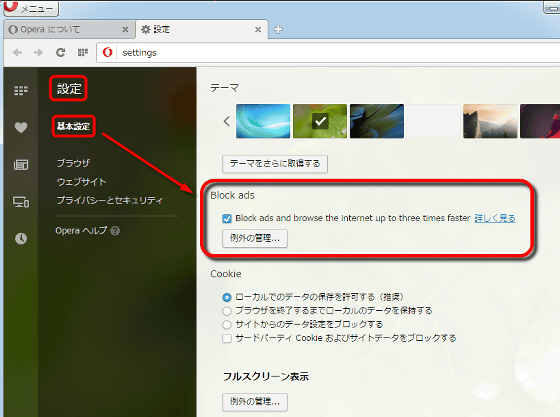
You can check the situation where you are actually blocking ads by clicking the icon to the right of the URL column of the browser. The number of ads blocked in the page, the number blocked in total, the number of blocks in the last 7 days, etc. are displayed. The page that the user unblocked is automatically registered in "whitelist", and it will operate to display the advertisement even if the blocking function is activated next time.
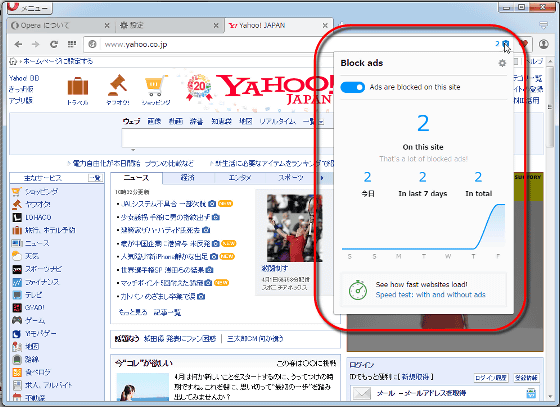
It seems interesting is the function called "benchmark". This is to read the page to be compared twice in the state of "with advertisement" and "without advertisement" and to compare the time required for each. Certainly, it is difficult to confirm speedup by ad block by numerical value, so this function seems to be very easy to understand. I tried comparing it on the top page of Yahoo! Japan, and found that reading speed increased by 16% when there was no advertisement.
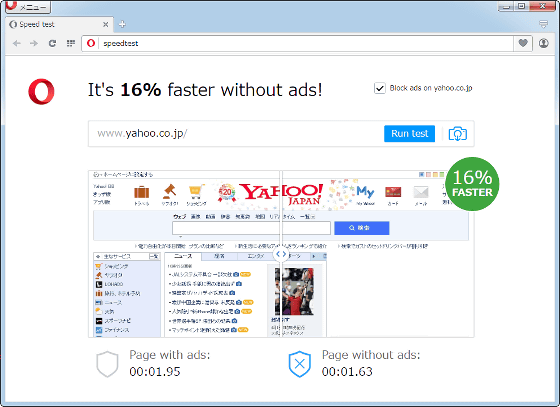
It is also said that Uri is faster than other competing advertisement blockers. Opera Software makes a benchmark comparison with key ad blockers and announces that native-motion ad blockers have displayed pages more quickly than major ad blockers such as uBlock and Adblock Plus.

In addition, in addition to this, improvements such as non-display of the "+" button displayed on the start page will be added in Opera version 37. For native ad blockers, we have Japanese explanation on 10th March 2016 blog, so if you read there, you can learn more about the details of the feature.
Implement native ad blocker for faster browsing
https://www.opera.com/blogs/japan/2016/03/native-ad-blocking-feature-opera-for-computers/
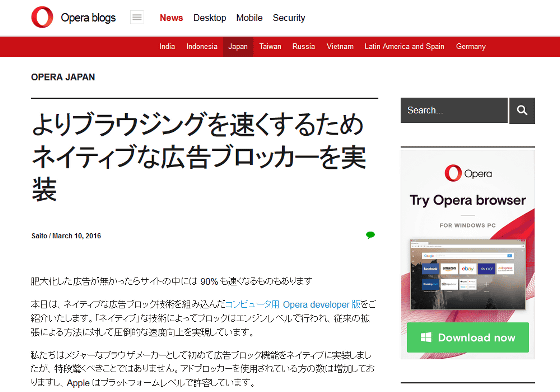
◆ 10th May 2016 12:30 additional note
"Opera 37 stable version" officially equipped with browser built-in advertisement blocking function that was being verified in the beta version has been released on May 4, 2016.
Built-in ad blocker in Opera | For Windows and Mac
https://www.opera.com/blogs/desktop/2016/05/ad-blocker-opera-for-windows-mac-free/
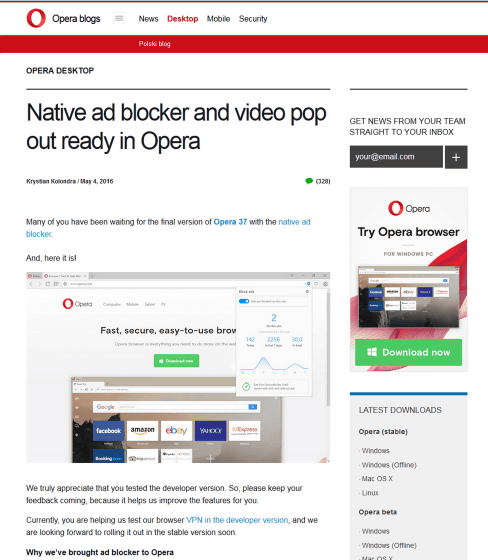
Ad blocker in Opera browser | Built into Opera for computers and Opera Mini - YouTube
Related Posts:






